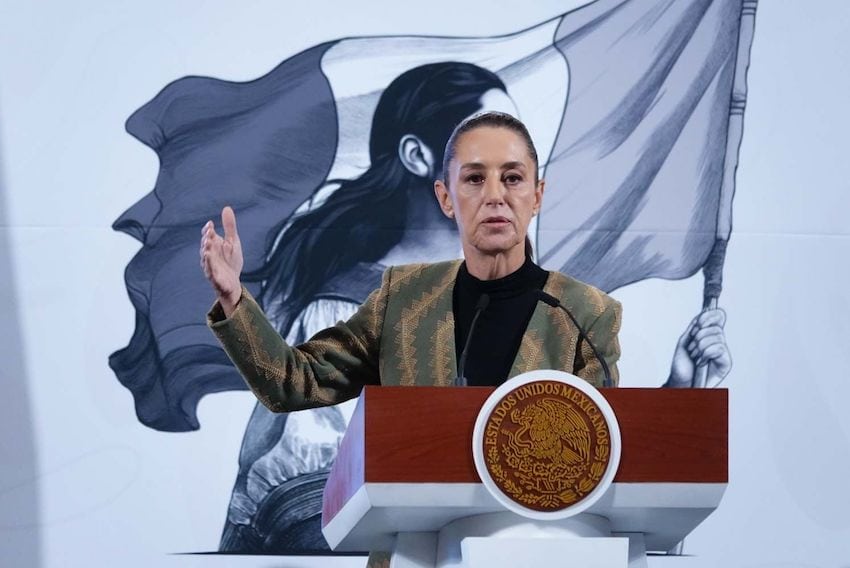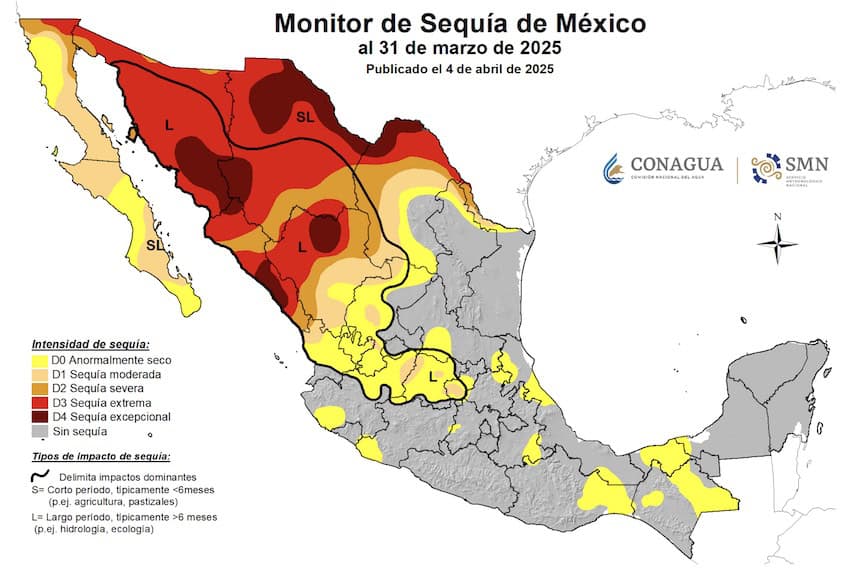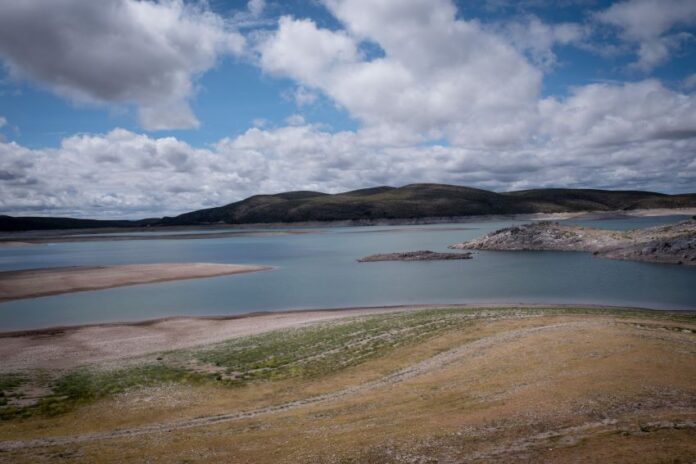Mexico’s President Claudia Sheinbaum on Tuesday denied reports that Mexico had capitulated to U.S. demands for immediate water deliveries required by a 1944 treaty that allocates surface water along their shared border. One of the reports, published by the Mexican newspaper Reforma, stated that the Coahuila dam “La Amistad” had increased its extractions by 600%.
Calling the published reports “false,” Sheinbaum said her administration is negotiating with northern states to send more water to the U.S. while recognizing that pervasive drought conditions have made it impossible to keep up with deliveries.

“Talks are underway with the governors of Tamaulipas, Coahuila and Chihuahua to reach a joint agreement to determine how much water can be delivered … without affecting Mexican producers, while also complying with the 1944 treaty,” Sheinbaum said at her daily press conference.
Mexico has been searching for solutions after falling behind on its required water deliveries, a situation that prompted U.S. President Donald Trump to threaten sanctions.
Trump took to social media last Thursday, criticizing Mexico’s failure to meet treaty obligations.
“Mexico OWES Texas 1.3 million acre-feet of water under the 1944 Water Treaty, but Mexico is unfortunately violating their Treaty obligation, and it is hurting South Texas Farmers very badly,” Trump wrote on Truth Social, adding “… we will keep escalating consequences, including TARIFFS and, maybe even SANCTIONS, until Mexico honors the Treaty, and GIVES TEXAS THE WATER THEY ARE OWED!”.
That same day, Sheinbaum said her government was working to resolve the issue. On Friday, she said Mexico was assessing how much water it could send to its northern neighbor “immediately.”
That prompted national and international media to report that Mexico was ceding to U.S. demands to avoid tariffs, even though Sheinbaum later said the amount of water Mexico could deliver depended on precipitation levels during the upcoming rainy season.
Mexico hopes to reach an agreement with the U.S. in the “next few weeks” in order to avoid the issue spilling into ongoing trade negotiations. Though one source cited by Reuters said “The expectations of the U.S. should be grounded in reality. [Mexico] cannot deliver water that does not exist.”
Last week, Mexico submitted a proposal to the U.S. that emphasized deliveries would depend on water availability. At the same time, the Sheinbaum administration is negotiating with northern states reluctant to share more of their scarce water supplies.
Officials from Chihuahua and Tamaulipas told Reuters their states cannot spare extra water and questioned the legality of a recent treaty amendment that gives the Mexican government greater authority to take water from them.
“We can’t give water to the United States when we don’t even have enough for our people,” said Chihuahua Governor María Eugenia Campos in a press conference. “No one is obligated to do the impossible.”
Mario Mata, executive director of Chihuahua’s water council, told the newspaper El Financiero that the state is considering legal action against the amendment.

The prospect of standoffs between northern farmers and federal authorities is not far-fetched. In 2020, a protestor was killed when Mexico’s National Guard clashed with farmers at Chihuahua’s Boquilla Dam over water deliveries to Texas.
Under the treaty, Mexico must send 1.75 million acre-feet of water to the U.S. from the Rio Grande every five years. The current five-year cycle concludes in October, but Mexico has sent less than 30% of the required water, according to data from the International Boundary and Water Commission.
Mexico has argued that a historic drought fueled by climate change is to blame, but Texas Republicans have dismissed that explanation, Reuters reported.
While Texas politicians publicly accused Mexico of flagrantly ignoring the treaty, the U.S. took the unprecedented measure of denying a Mexican request to send water from the Colorado River to Tijuana. It was the first rejection by either side since the treaty was signed over 80 years ago.
With reports from El Imparcial, Reuters, La Jornada, El Financiero and Infobae
